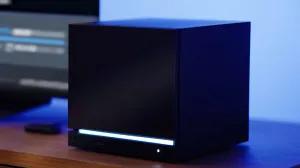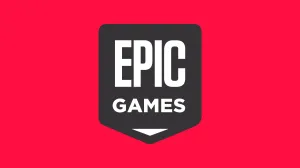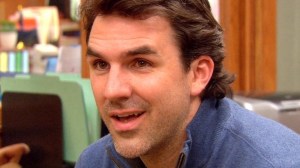If you’ve been watching Marvel’s Cloak & Dagger for the past two years, I don’t need to tell you that this show takes more care of, and pays more attention to, the delicate tragedies of the fragile world we live in than perhaps any other series on TV, comic book-inspired or otherwise. Topics like racism, police brutality, domestic abuse, identity disorders, and human trafficking are all handled with an immense amount of grace and poise, so much more than you might expect when you think the show is about a duo of teenage superheroes.
Videos by ComicBook.com
How does Cloak & Dagger manage to balance all of that care and compassion with its action-heavy source material? It all comes down to the ultra-devoted, incredibly diverse cast and crew, spearheaded by showrunner Joe Pokaski. Every production starts at the top, and Pokaski has spent the last two years setting an important and inclusive precedent, molding Cloak & Dagger one of TV’s safest, boldest, and most open workplaces. With the heartbreaking stories coming from various production sets today, that’s an impressive feat in and of itself. But Pokaski is also a storyteller at heart, and when the most difficult and emotional episode of the series came around, he took things into his own hands.
Last Thursday’s episode, “Vikingtown Sound,” took things farther than any episode of the series to-date. The story of human trafficking reached a truly painful climax, and lead character Tandy Bowen (played beautifully by Olivia Holt) was put into the most traumatic and vulnerable position possible. On the heels of the controversial rape dialogue in that week’s episode of Game of Thrones, Cloak & Dagger was set up to be another topic of Twitter conversation. But Pokaski and his writers knew better. The showrunner not only wrote the episode, but stepped behind the camera to direct for the first time. Not because he wanted to step up to some kind of challenge, but because he cares so much about Holt and the rest of the cast, as well as the real life victims affected by these heinous acts.
After watching the episode last week, I had the chance to speak with Pokaski about his directorial debut, and I couldn’t help but ask, “Why this one?” Of all the episodes in the series so far, why step in for the most intense? Instead of chopping this up into sections, I’m just going to share Pokaski’s answer in its entirety, because he says it all.
”I think the most important thing is, we’ve been asking Olivia to do a lot of things actresses don’t have to do this year. We walked her through her arc at the beginning of the year and we told her it was going to get raw and, you know, if you look at what she’s done over the course of the season, she started off kind of rolling her eyes in a support group and then kind of calling her mom out and trivializing abuse. Going on to victim blaming, kind of playing the [innocent] to some degree. Only to become a victim herself.
“And in episode six we really wanted to kind of do, at least the super hero analog of what happened to these women. And the next step is once they are kind of in the clutches, they’re broken down. And then obviously in episode seven we get into some sensitive territory. And so, the more I thought about this episode as we started breaking it, the two things I wanted to make sure of were A) Olivia was okay playing all this. And B) that the right person was directing her so someone keep an eye out. Because I started getting terrified about the idea of playing telephone and not being there, and not being able to look her in the eye and tell her what she needs to do or have conversations with her as to what was too much.
“The more we kind of started breaking it out, I started off saying I need to write it myself, but then I was like, ‘I think I need to direct it.’ And I asked the people at Marvel and they totally understood it and they were completely supportive. So, that was kind of a big thing. And on top of the fact that Aubrey [Joseph]’s scene in the hallway was a little more sensitive than I thought it was going to be. And to be able to kind of look him in the eye and walk through that with him. You know, I’ve grown to love these kids, and since I’ve been [here] taking care of them is job number one. So, it was important to do it in that sense.”
The top goal was protecting the young stars of the show in what was easily the hardest period of work in their careers, but Pokaski was quick to note that he never could have done it alone.
“We have a room full of very smart, very opinionated, very talented women,” Pokaski added. “This script in particular I ran through them a hundred times and told them call me up where I’m not getting it or doing something wrong. So, you have to give credit, I think a lot of the women in the room. I remember Kate Rorick being very vocal about how we were to represent Tandy, how we should represent the John as a faceless human being, which really takes the sting off and adds a little bit of a sting? And I think them holding my hand and making sure I was doing the right version of it, was as important as any other part in the process.”
Cloak & Dagger is a special thing. Plain and simple. We should all be paying attention to what Pokaski and his crew have cooking down in New Orleans, both in front of and behind the camera.
—–
Have you subscribed to ComicBook Nation, the official Podcast of ComicBook.com yet? Check it out by clicking here or listen below.
In this latest episode, we break some major X-Men news, discuss THAT episode of Game of Thrones, and do a deep dive into all this weeks comics! After Star Wars: The Rise Of Skywalker are you ready for a different take on the franchise? Find out the answer and make sure to subscribe now to never miss an episode!








